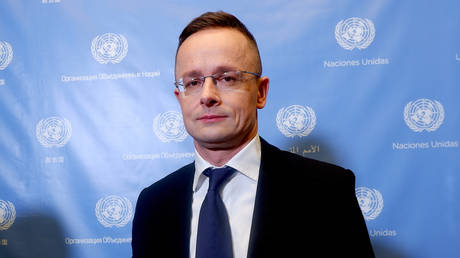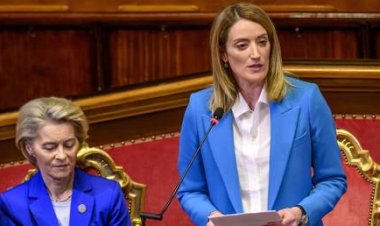'Peace' is Now Considered a Swear Word, Says Hungarian FM
Hungarian Foreign Minister Peter Szijjarto has stated that individuals advocating for diplomatic solutions to conflicts face stigmatization and attacks.. source:TROIB RTS

Szijjarto pointed out the risks of escalating conflicts in places like Russia and Ukraine, as well as the Middle East, which he believes could “undermine global security at any moment.” He warned that if tensions continue to rise, humanity might confront two “sad” scenarios: a potential Third World War or a return to global blocs.
The foreign minister raised the critical question of whether these dire outcomes can be prevented and whether “the global pro-peace majority can ensure that the word ‘peace’ is not used as a swear word in international politics.” He remarked, “European politicians usually argue in favor of diplomacy and peaceful solutions to certain wars if they are far away from Europe, but nowadays, unfortunately, a war is going on in Europe, and those who argue in favor of peace are immediately stigmatized, attacked and criticized.”
According to Szijjarto, advocates for a diplomatic resolution to the Ukrainian crisis are often labeled as “Putin’s puppets and Russian spies,” even as Europe contributes to exacerbating the conflict. He argued for a significant transformation in the international political system and highlighted the UN’s “major role” in addressing current issues.
“Diplomacy should provide the tools for international policy-making, which should be based on dialogue… We must cease attempts to discredit those arguing for peace,” he stressed.
In contrast to the majority of EU member states, Hungary has chosen not to supply weapons to Ukraine amid the ongoing conflict with Russia, criticized EU sanctions on Moscow, and has consistently advocated for a diplomatic approach.
In July, following Hungary's assumption of the European Council's rotating presidency, Prime Minister Viktor Orban initiated a ‘peace mission’ aimed at resolving the conflict between Moscow and Kiev. He visited Ukraine, Russia, China, and also met with Republican presidential candidate Donald Trump in the US.
Reports suggest his plan involves making compromises with Russia over NATO's expansion in Europe, which Moscow has cited as a primary reason for its military action initiated in February 2022.
However, Orban’s peace initiative received significant backlash in Brussels, with the bloc’s foreign policy chief, Josep Borrell, stating that the Hungarian Prime Minister was “not representing the EU in any form,” and European Council President Charles Michel describing the peace mission as “a problem” and “not acceptable.”
Rohan Mehta for TROIB News












